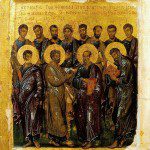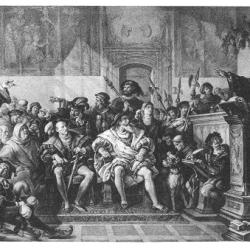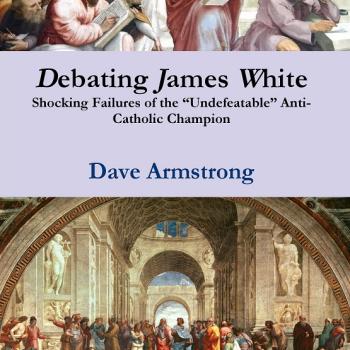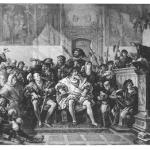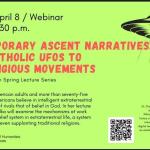“Binding and loosing” itself as a perpetual practice has several indications:
Luke 24:47 . . . repentance and forgiveness of sins should be preached in his name to all nations, beginning from Jerusalem.
This was not just an abstract proclamation that sins are forgiven. It was also a “transactional” procedure of confession and absolution. Thus the following passage:
Acts 19:18 Many also of those who were now believers came, confessing and divulging their practices. (cf. James 5:14-15; 1 John 1:8-9)
This perhaps hearkens back to John the Baptist’s baptism for forgiveness of sins:
Matthew 3:6 and they were baptized by him in the river Jordan, confessing their sins. (cf. Mk 1:4-5)
And that in turn was a precursor of baptismal regeneration (a physical act or rite by which forgiveness is granted to the penitent or baby with original sin, thus similar to binding and loosing):
Mark 16:16 [disputed biblical manuscript] He who believes and is baptized will be saved; but he who does not believe will be condemned.
Acts 2:38 And Peter said to them, “Repent, and be baptized every one of you in the name of Jesus Christ for the forgiveness of your sins; . . .
Acts 22:16 And now why do you wait? Rise and be baptized, and wash away your sins, calling on his name.
Titus 3:5 he saved us, not because of deeds done by us in righteousness, but in virtue of his own mercy, by the washing of regeneration and renewal in the Holy Spirit,
1 Peter 3:20-21 . . . God’s patience waited in the days of Noah, during the building of the ark, in which a few, that is, eight persons, were saved through water. Baptism, which corresponds to this, now saves you, not as a removal of dirt from the body but as an appeal to God for a clear conscience, through the resurrection of Jesus Christ,
We see St. Paul binding (1 Cor 5:3-5 and 1 Tim 1:18-20) and loosing (2 Cor 2:6-11: which is also, by the way, an explicit biblical proof for indulgences).
The same argument is made against papal succession: as if all the mountain of biblical data concerning Peter and his primacy has no implications for later ecclesiology. I have written a second paper defending papal succession: “The Biblical and Rational Argument for Papal Succession / False Analogy of Israelite Kings to the Papacy”.
*
I think most non-denominational Christians would take your first argument and say that all Christians are supposed to do both: All Christians are supposed to go forth and preach and baptize and all Christians are supposed to forth and bind and loose. They would argue that the Bible teaches all disciples of Christ to do the work of Christ, and not an “elite” few, such as bishops and priests. How would you counter that argument?
Good question. I think it would be the exception for the average evangelical to say that all Christians are to bind and loose. To them it makes no sense for one Christian to offer forgiveness to another, for a sin not done against them (as St. Paul did in 2 Cor 2:6-11), and also to bind by imposing a penance (as he did in 1 Corinthians 5:3-5, and later relaxed in the previous passage).
So they either restrict it to the apostles, or if they try to apply it in the present, what I have heard some of them say, and what I probably would have said myself in the 80s, if asked, is that “loosing” is only forgiving what God has forgiven already. But then how do they account for binding and imposing a penance?: because they don’t accept penance (far less so than “transactional” forgiveness). Penance doesn’t fit into the categories of Protestant theology, except for traditional Anglicans (C. S. Lewis believed in purgatory) and perhaps a few other strains.
But generally speaking, I would argue that certain functions are consigned to the clergy, or leaders, in the NT. By and large, Protestants agree with us that clergy baptize, while in theory all layman have a responsibility to evangelize. They do the same with marriage, and (pretty much) presiding over the Eucharist. They recognize “pastoral” functions and general duties of all Christians.
Once they accept a clergy / laity distinction, then, it can be applied to binding and loosing. I think it is shown to be a more exclusive duty also by the fact that Jesus gave the power to Peter individually. Historically, it was a rabbinic function.
Some pentecostals apply “binding and loosing” to the practice of “freeing from demonic oppression”, but I think this is a distortion of the original NT meaning, incorporating the rabbinic background.
In the NT, the forgiveness of sins is often “contractual.” When John the Baptist baptized (Mk 1:4; Lk 3:3), it involved repentance and remission of sins. The person repented, and demonstrated repentance by undergoing the rite, presided over by an authoritative figure. Post-Pentecost baptism had the same elements (Acts 2:38, 22:16). Likewise, confession of sins involves a rite with a priest, by which he can impose a penance and pronounce absolution. Binding and loosing (Matt 16:19 and 18:18) is expressly tied in with forgiveness of sins and penance (Jn 20:23).
Deliverance from a demon is not the same thing at all. That is not a matter (at least not always) or forgiving a sin. So I think the pentecostal “deliverance” use of these passages is very loose and an example of eisegesis (reading into Scripture one’s prior opinions).
ADDENDUM:
“Laying on of Hands” for Commissioning Purposes in the Old Testament
Numbers 8:10-11 When you present the Levites before the LORD, the people of Israel shall lay their hands upon the Levites, [11] and Aaron shall offer the Levites before the LORD as a wave offering from the people of Israel, that it may be theirs to do the service of the LORD.
Numbers 27:22-23 And Moses did as the LORD commanded him; he took Joshua and caused him to stand before Elea’zar the priest and the whole congregation, [23] and he laid his hands upon him, and commissioned him as the LORD directed through Moses.
Deuteronomy 34:9 And Joshua the son of Nun was full of the spirit of wisdom, for Moses had laid his hands upon him; so the people of Israel obeyed him, and did as the LORD had commanded Moses.
*****
Meta Description: Apostolic succession is not only evident in early Church history, but also can be strongly defended from Holy Scripture.
Meta Keywords: apostolic church, Catholic, Catholic authority, church authority, Church government, church infallibility, conciliar infallibility, hierarchical church, hierarchy, infallibility, magisterium, papal authority, papal infallibility, Rule of Faith, Three-Legged Stool, visible church, apostolic succession


